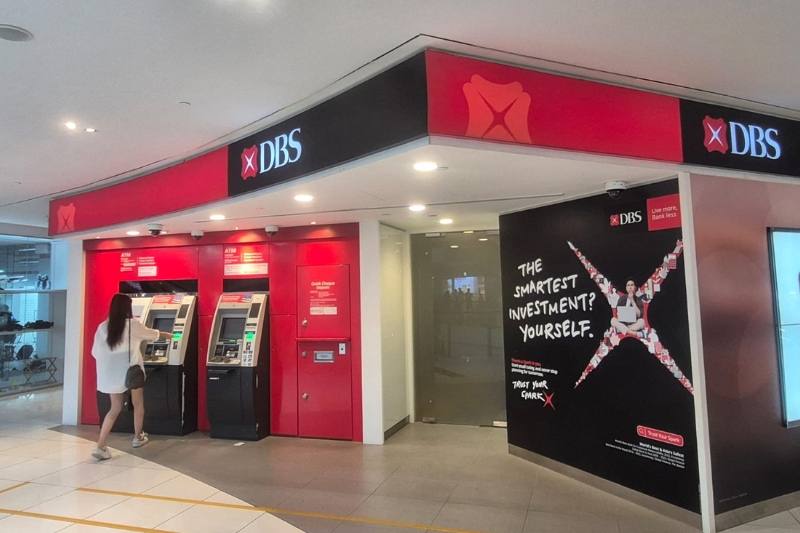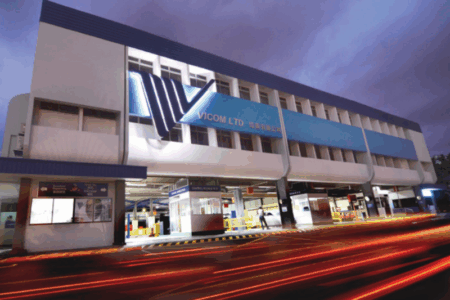DBS Group (SGX: D05) recently saw its share price reach a new all-time high, breaking through the S$50 level for the first time.
Singapore’s largest bank has achieved several milestones in recent years and also won various accolades.
The group received the “World’s Best Bank” award at the Euromoney Awards for Excellence 2025, marking the third time that the bank has won this award.
A year ago, the lender became the first Singapore-listed company to achieve S$100 billion in market capitalisation.
Back in June, DBS once again made headlines as the first local company to surpass US$100 billion in market value, partly aided by a weak US dollar.
And just this week, DBS achieved another first with its share price breaking through the S$50-level, giving it a market capitalisation of more than S$140 billion.
What’s next for the bank, and can it continue to do well?
A robust set of earnings
DBS reported a robust set of earnings for the first half of 2025 (1H 2025).
Total net interest income rose 3.2% year on year to S$7.3 billion despite the bank’s net interest margin dipping from 2.14% to 2.08%.
Customer loans grew 2% year on year to S$433 billion, which helped to mitigate this headwind.
Net fee and commission income grew strongly by 17% year on year to S$2.4 billion, led by a 30% year-on-year increase in wealth management fees to S$1.37 billion.
Loan-related fees also climbed to a new record of S$412 million, up 11% year on year.
Total income stood at S$11.6 billion, a record high and up 5% year on year.
Profit before allowances also hit a new record of S$7.2 billion, up 5% year on year.
Profit before tax achieved a new record of S$6.8 billion, but net profit dipped by 1% year on year to S$5.7 billion because of the implementation of a 15% global minimum tax rate.
A dividend powerhouse
DBS may have risen around 14% year-to-date, but the lender is not just known for its strong share price performance.
The blue-chip bank has also increased its dividends significantly since the onset of the pandemic.
During the first quarter of 2023 (1Q 2023), the bank paid out S$0.38 per share in dividends.
This quarterly dividend was raised to S$0.44 in 2Q 2023 and then once again to S$0.49 by 4Q 2023.
For the first three quarters of 2024, DBS paid out a quarterly dividend of S$0.54 each, in yet another increase.
By 4Q 2024, DBS had raised its quarterly dividend to S$0.60 per share, and also announced an additional S$0.15 per share capital return dividend to manage down its excess capital.
For its most recent 2Q 2025, the bank paid out a total of S$0.75 per share in dividends, comprising the core dividend of S$0.60 and capital return dividend of S$0.15.
In just two years, DBS managed to nearly double its quarterly dividend from S$0.33 to S$0.75.
Navigating rough seas
Looking ahead, CEO Tan Su Shan maintains a sanguine outlook for the bank.
The group’s net interest income for 2025 is expected to be slightly higher than 2024 levels despite lower SORA interest rates.
The bank believes that strong deposit and loan growth can offset the headwind of lower net interest margin.
Meanwhile, non-interest income is expected to continue growing and post a mid-to-high-single-digit year-on-year increase.
Net profit is expected to be lower than 2024’s level mainly because of the global minimum tax rate of 15%.
Banks are inherently cyclical
While DBS looks ready to withstand any incoming storm, investors should note that banks are inherently cyclical businesses that are sensitive to macroeconomic conditions.
This fact is one of the risks of investing in banks.
Should the macroeconomic outlook deteriorate significantly, whether due to persistently high interest rates or Trump’s tariffs, DBS will not remain unscathed.
That said, the progress that DBS has built over the years should help it to mitigate some of these headwinds.
The bank has embraced digitalisation, automation and artificial intelligence to enable it to post a very high return on equity of 17% (for 2Q 2025).
These attributes should stand the bank in good stead to weather tough times and allow it to bounce back strongly once the storm clouds have passed.
Get Smart: A robust track record
DBS has built up a solid growth track record.
The bank has also demonstrated its resilience by bouncing back strongly post-pandemic.
Along the way, DBS has also steadily increased its dividends, which have added to investors’ total returns.
Remember, though, that there are risks involved in investing in banks, and that these pertain mainly to the macroeconomic environment.
DBS has proven itself time and again, so investors should feel confident that the bank can tackle any future challenges that come along.
We’ve found 5 SGX-listed dividend stocks with strong track records in turbulent markets. If you want consistency in an uncertain world, start here.
Follow us on Facebook, Instagram and Telegram for the latest investing news and analyses!
Disclosure: Royston Yang owns shares of DBS Group.





